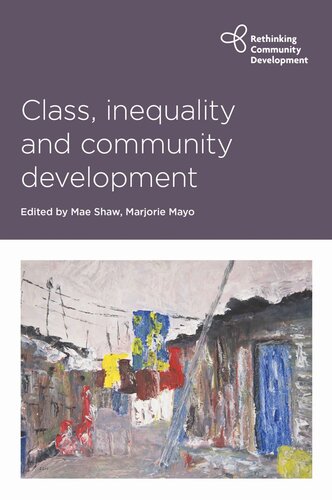

Most ebook files are in PDF format, so you can easily read them using various software such as Foxit Reader or directly on the Google Chrome browser.
Some ebook files are released by publishers in other formats such as .awz, .mobi, .epub, .fb2, etc. You may need to install specific software to read these formats on mobile/PC, such as Calibre.
Please read the tutorial at this link: https://ebookbell.com/faq
We offer FREE conversion to the popular formats you request; however, this may take some time. Therefore, right after payment, please email us, and we will try to provide the service as quickly as possible.
For some exceptional file formats or broken links (if any), please refrain from opening any disputes. Instead, email us first, and we will try to assist within a maximum of 6 hours.
EbookBell Team

4.0
26 reviewsThis book, the second title in the Rethinking Community Development series, starts from concern about increasing inequality worldwide and the re-emergence of community development in public policy debates. It argues for the centrality of class analysis and its associated divisions of power to any discussion of the potential benefits of community development. It proposes that, without such an analysis, community development can simply mask the underlying causes of structural inequality. It may even exacerbate divisions between groups competing for dwindling public resources in the context of neoliberal globalisation. Reflecting on their own contexts, a wide range of contributors from across the global north and south explore how an understanding of social class can offer ways forward in the face of increasing social polarisation. The book considers class as a dynamic and contested concept and examines its application in policies and practices past and present. These include local/global and rural/urban alliances, community organising, ecology, gender and education.